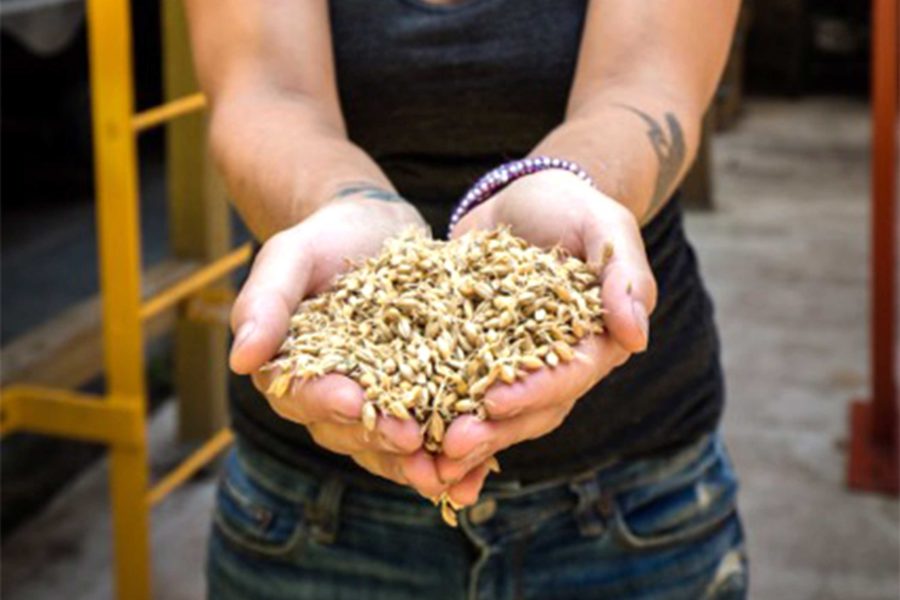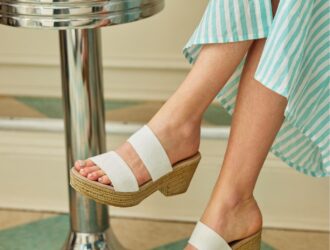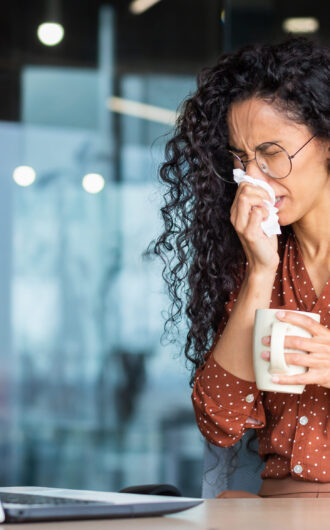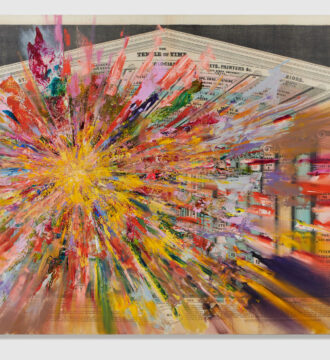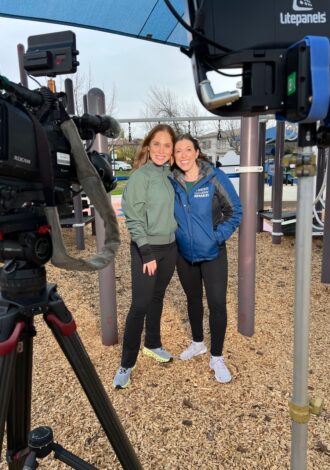Massachusetts has a lot to boast about. It’s the birthplace of basketball and the first state to legalize same-sex marriage. Well, here is another detail: Massachusetts is giving rise to an increasing amount of women making craft beer.
In fact, there are women behind some of your favorite regional brews. Surprised? We’re not.
These ladies have built successful businesses and supportive communities. Bringing each other up in a traditionally male-dominated industry is the new status quo.
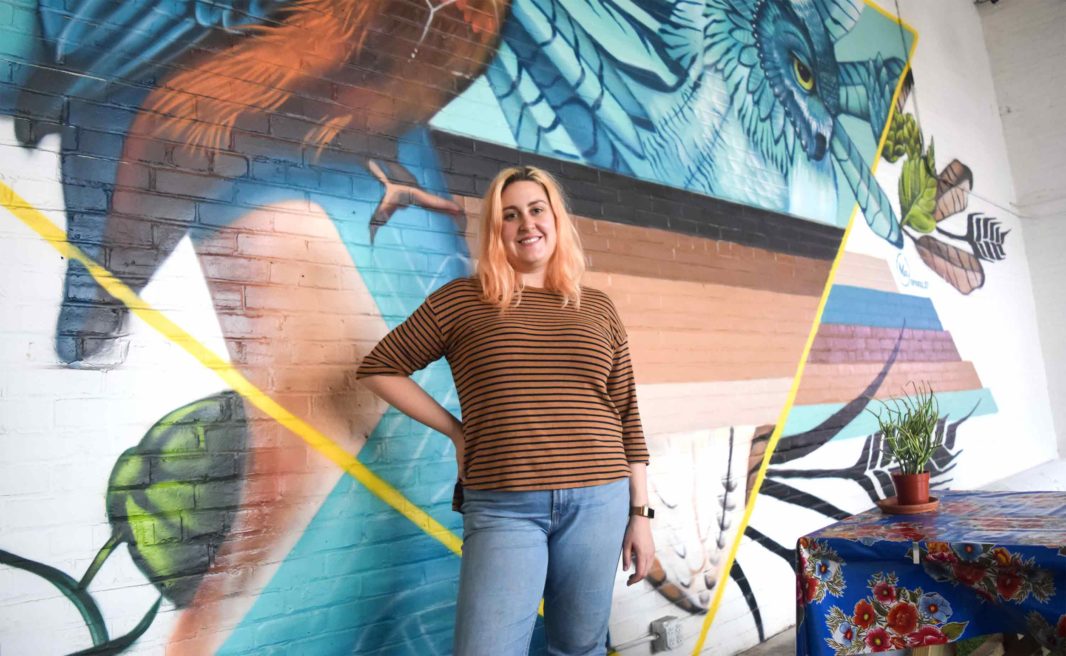
KAREN MORALES
Dani Babineau of Redemption Rock Brewery
The Local State of Craft Brewing
The amount of women-led or co-owned breweries in Massachusetts is close to 20, according to rough counts by Katie Stinchon, executive director of Mass Brewers Guild. There are 185 commercial breweries in the state altogether.
The number of women making craft beer goes up when you consider those who don’t actually own a brewery. Take the Massachusetts chapter of the female brewer advocacy group, Pink Boots Society, for example: With 188 members, it’s the largest chapter in the country.
This is a new era of beer in the Bay State. Consider the diversity of flavors and formulas, and those who are getting their boots wet and hands dirty as makers.
CraftRoots Brewing in Milford, Massachusetts, is the first brick-and-mortar brewery completely run by women, founded by Maureen Fabry and wife Robin Fabry in 2014. In 2017, the National Brewers Association named CraftRoots the fastest-growing brewery in the U.S.
Brazo Fuerte, another female-owned beer business in Massachusetts, was founded by Beverly Armstrong in 2016. A few years ago, a Sam Adams-sponsored award program selected Harvard-educated Armstrong to receive business mentoring and coaching resources.
Then there’s Northampton Brewery, the oldest operating brewpub in the Northeast, co-founded by Janet Egelston-Cichy, her brother Peter, and their former partners. Andrea Stanley runs Valley Malt, in Hadley and is often the go-to source for malt for many local brewers. Founded by Michelle da Silva and Dana Masterpolo, Bantam Cider Company in Somerville is the state’s first cider taproom.
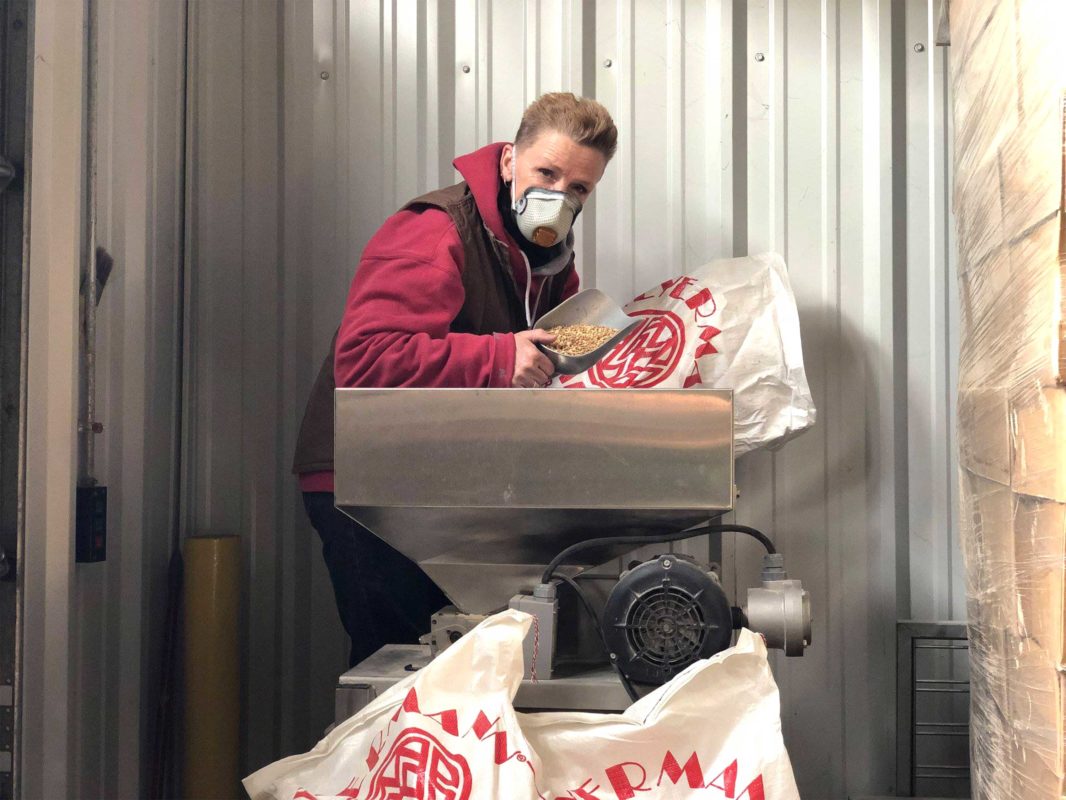
Courtesy CraftRoots Brewing
Robin Fabry of CraftRoots Brewing
In Worcester, Dani Babineau, CEO of Redemption Rock Brewery, launched her beer business over four years ago after getting her MBA at Babson College. Before that, she spent her time home brewing and volunteering at beer festivals with fiancé Greg Carlson, Redemption’s head brewer.
“Beer was very much a big part of our lives,” she says. “I fell in love with the idea of doing business, specifically entrepreneurship.”
Support in Spades for Female Brewers
Babineau is an active member of the Pink Boots Society. She is also intentional about bringing women up within her own company. Out of the eight employees at her brewery, five are women.
People ask her why there’s a need for a group like Pink Boots Society. “Well, there’s less of us,” she says. “We’re going through a lot of the same things. There are still plenty of struggles women experience in this industry.”
While she was in grad school, “people would try and quiz me on my beer knowledge,” says Babineau. “There are guys who think they know more than you.”
Kristin Sykes, founder of the Boston Area Beer Enthusiasts Society (BABES), and longtime home brewer and beer aficionado, agrees. “I’ve heard stories from female brewers selling their beer at festivals. Male patrons would walk right up to them ask for the brewer to talk about the beer.”
Babineau says her female peers “deal with not getting paid as much as their co-workers, sexual harassment, being passed up for promotions, and discriminatory dress codes.”
“Everything women face in any other work space is faced here,” she adds. “But, a lot of times it’s more so because it’s in the hospitality industry and can involve drunk people.”
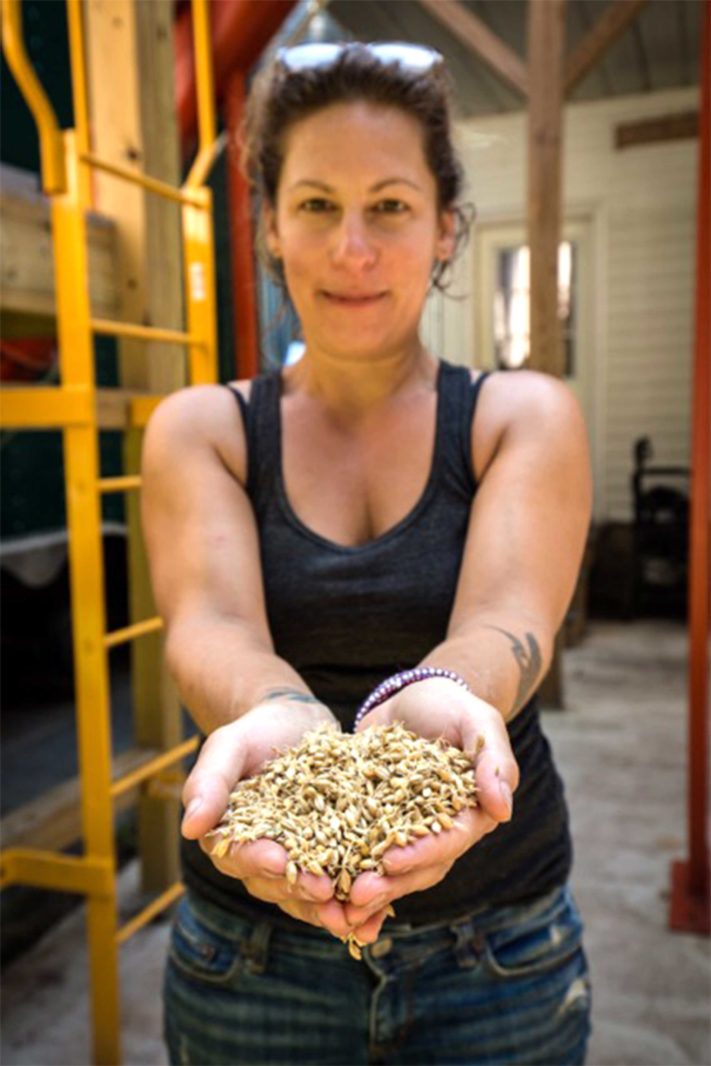
Courtesy Andrea Stanley
Andrea Stanley of Valley Malt
Numbers On The Rise of Women Making Craft Beer
Katie Stinchon describes herself as someone who has always been a craft beer super fan, even starting a blog and podcast on the topic when she was younger and taking on her “dream job” as executive director of the Massachusetts Brewers Guild in 2016.
She says the amount of women making craft beer has grown “tenfold over the last three years I’ve been in this role.” At member meetings, attendees are usually split 50/50 between men and women.
“It’s an amazing community with mentors that always look to raise people up and provide people with experiences and education. If they’re hardworking and they want to get after it,” says Stinchon.
Although the experience for women in the beer industry may be distinct from men, she “wouldn’t want anyone to hold themselves back thinking it might be a barrier that they can’t cross.”
She says, “From what I’ve seen, a lot of women have grown and thrived in the scene. They started as keg washers and are now brewers. They’re kicking ass.”



 4 min read
4 min read